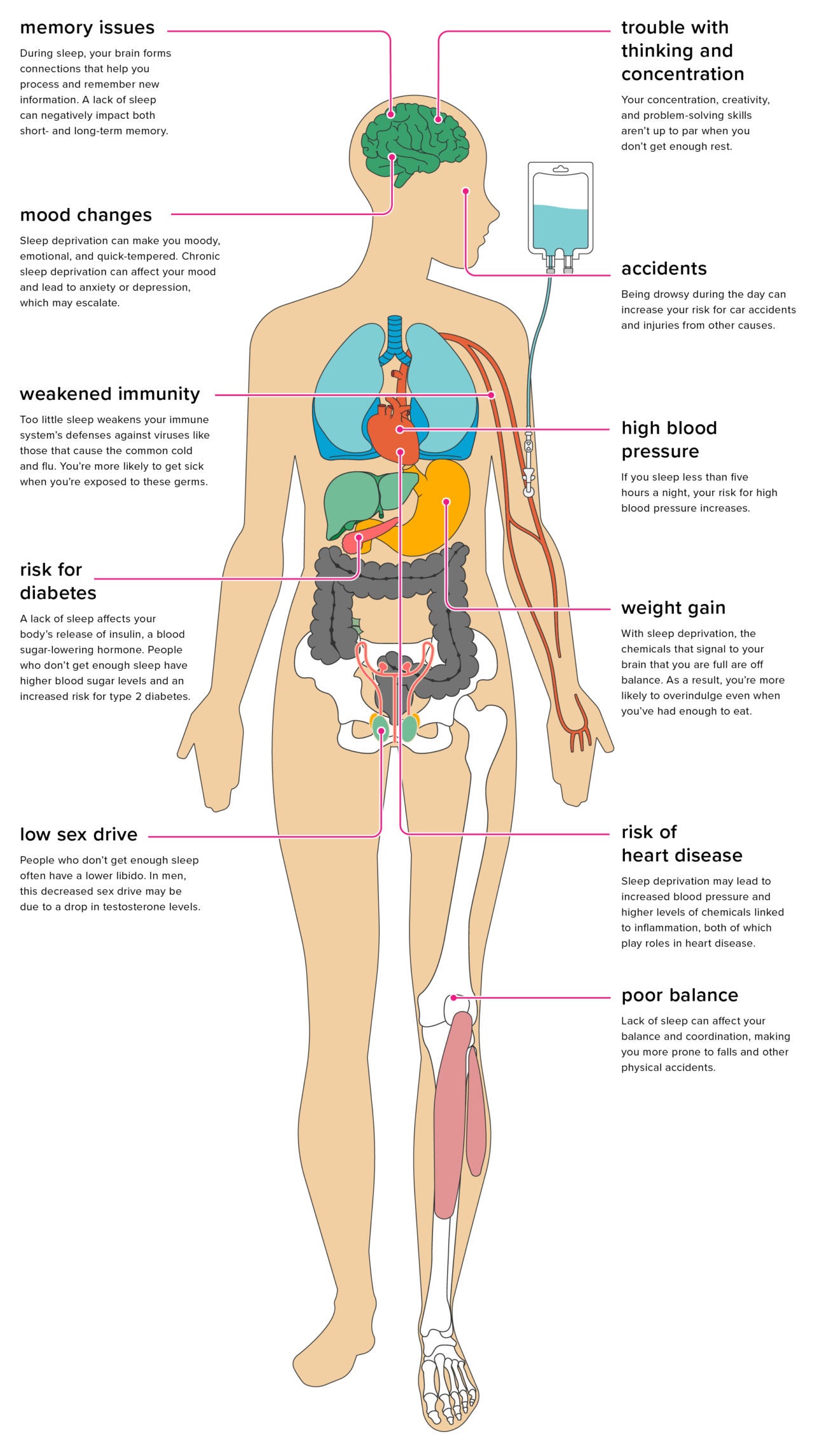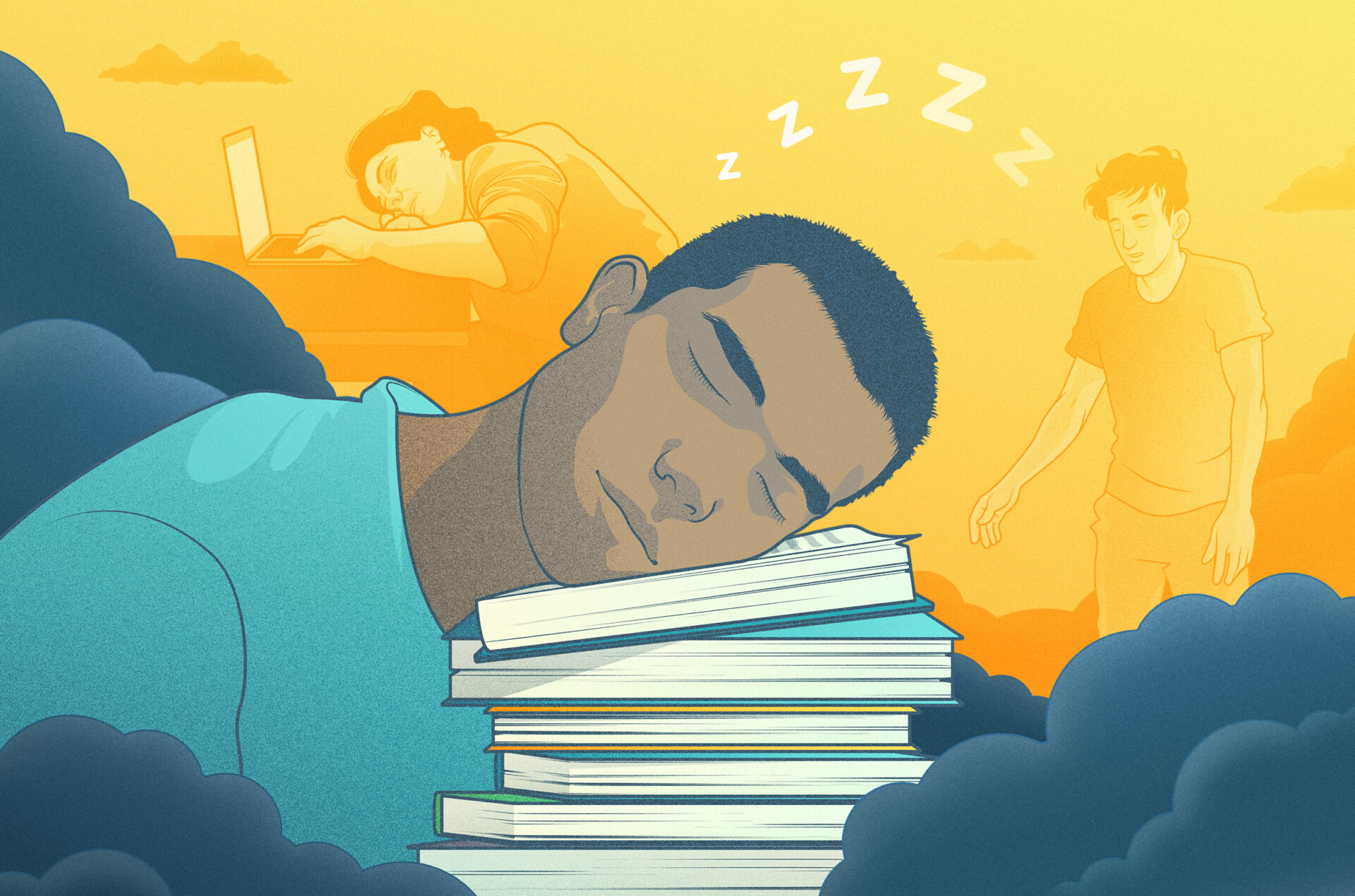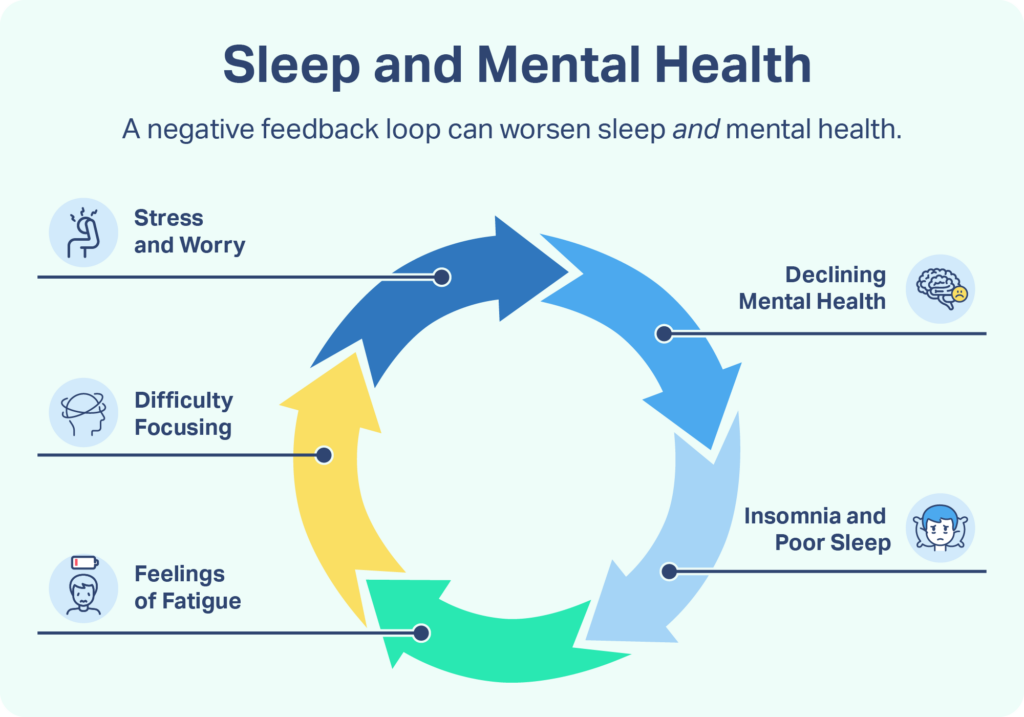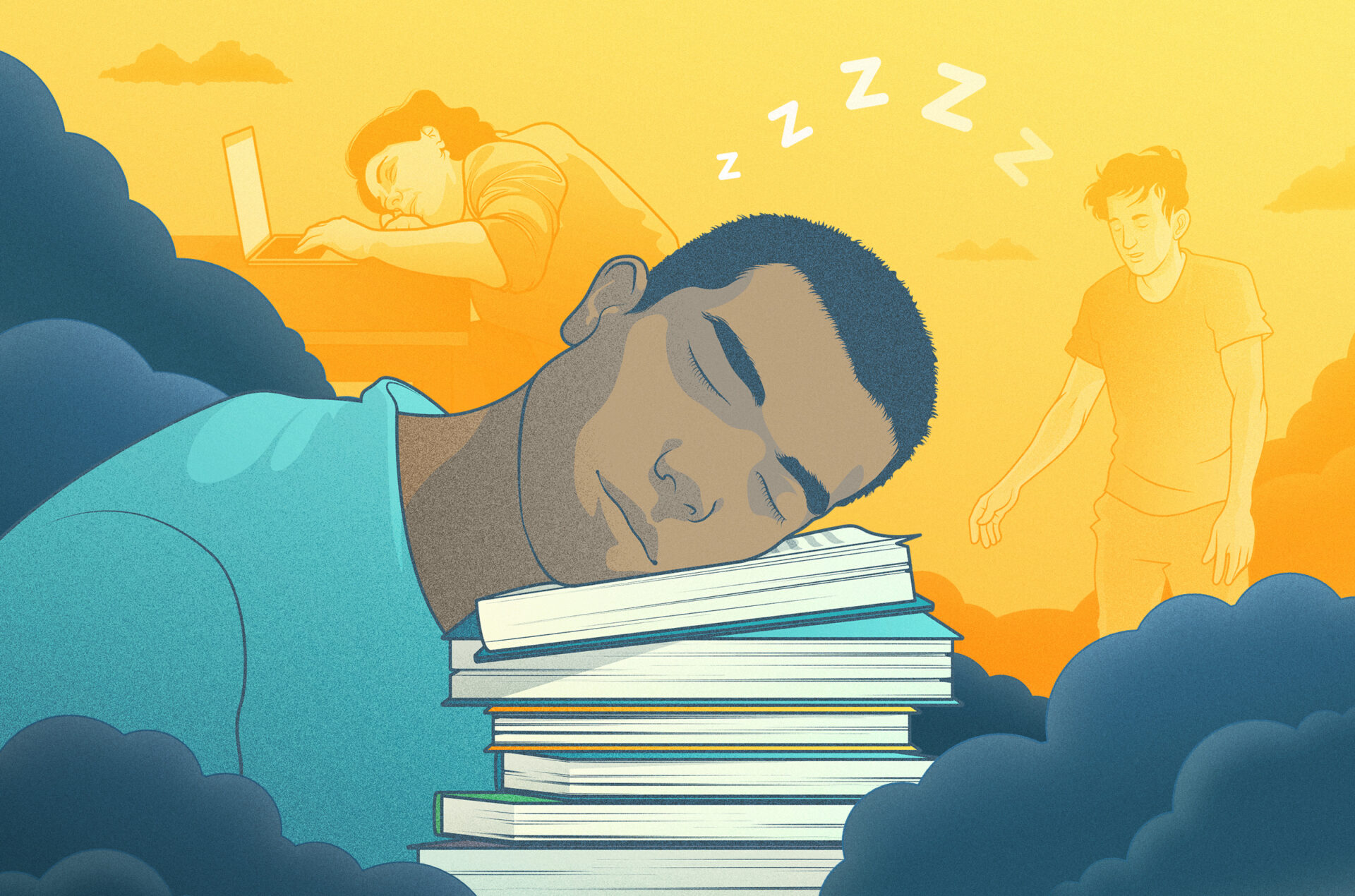Quality sleep is crucial for overall health as it impacts both physical and mental well-being significantly. Adequate rest supports cognitive function and immune system.
It also plays a key role in energy levels and emotional regulation. Studies show that consistent sleep deprivation can lead to chronic health issues such as obesity and depression. Prioritizing good sleep hygiene is vital for maintaining optimal health in the long run.
By nurturing healthy sleep habits, individuals can improve their quality of life and reduce their risk of various health complications. In the following sections, we will delve deeper into the profound influence of sleep on physical and mental health.

Credit: www.healthline.com
The Importance Of Sleep
Getting enough quality sleep is crucial for both physical and mental well-being. It plays a vital role in the body’s overall function and has a profound impact on various aspects of health.
Impact On Physical Health
Sleep is essential for the body’s repair and rejuvenation, aiding in muscle growth and tissue repair. Lack of sleep can lead to weakened immunity, making individuals more susceptible to illnesses.
Impact On Mental Health
Adequate sleep is necessary for cognitive function, memory consolidation, and emotional well-being. Sleep deprivation can impair decision-making and increase the risk of mental health disorders.
Physical Health Benefits
Quality sleep is vital for maintaining overall well-being, impacting both physical and mental health positively.
Enhanced Immune Function
Sleep contributes to a healthy immune system, helping the body fight off illnesses effectively.
Improved Physical Performance
Adequate sleep plays a vital role in enhancing physical performance and optimal functioning of bodily systems.
Mental Health Benefits
Improving mental health is a significant benefit of getting adequate sleep. Sleep plays a crucial role in maintaining optimal cognitive function and emotional well-being, contributing to overall mental health.
Better Cognitive Function
Sufficient sleep is closely associated with enhanced cognitive function. During sleep, the brain consolidates memories and processes information. This consolidation process helps in improving learning and problem-solving skills. It also aids in boosting attention and concentration, resulting in better cognitive performance.
Emotional Well-being
Quality sleep is essential for maintaining balanced emotions and well-being. Lack of sleep can lead to irritability and emotional instability as it impairs the brain’s ability to regulate emotions. On the contrary, getting sufficient sleep promotes emotional resilience and equilibrium by contributing to a more positive outlook on life.
Sleep Deprivation
When it comes to overall health and well-being, one often overlooked factor is sleep. With our fast-paced lives and constant commitments, many people sacrifice sleep in order to fit everything into their busy schedules. However, sleep deprivation can have serious consequences for both physical and mental health.
Negative Impact On Physical Health
Sleep deprivation has been linked to numerous negative effects on physical health. One of the most immediate and noticeable impacts is a decrease in energy levels. When we don’t get enough sleep, we wake up feeling tired, groggy, and unmotivated. This lack of energy can make it difficult to engage in physical activities, leading to a sedentary lifestyle and potential weight gain.
Moreover, sleep deprivation has been associated with an increased risk of developing chronic conditions such as cardiovascular disease, diabetes, and obesity. Sleep plays a vital role in regulating hormone levels, including those that control appetite and metabolism. When we don’t get enough sleep, these hormones become imbalanced, leading to cravings for high-calorie and unhealthy foods.
- Decreased energy levels
- Risk of chronic conditions
- Hormonal imbalances
- Cravings for unhealthy foods
Negative Impact On Mental Health
Sleep deprivation also takes a toll on our mental health. Lack of sleep can lead to mood swings, irritability, and difficulty concentrating. Sleep is crucial for the brain to restore and rejuvenate itself, and when we don’t get enough, our cognitive function suffers.
Additionally, sleep deprivation has been linked to an increased risk of developing mental health disorders such as depression and anxiety. Chronic lack of sleep disrupts the brain’s ability to regulate emotions, leading to heightened stress levels and an increased vulnerability to mental health issues.
- Mood swings
- Irritability
- Difficulty concentrating
- Increased risk of depression and anxiety
It’s clear that sleep deprivation has significant negative impacts on both physical and mental health. Prioritizing and getting enough sleep is essential for overall well-being and should not be overlooked.
Tips For Quality Sleep
Prioritizing quality sleep is essential for maintaining overall well-being. Incorporating a consistent bedtime routine, limiting screen time before bed, and creating a comfortable sleep environment can all contribute to better physical and mental health. Establishing healthy sleep habits can lead to improved mood, cognitive function, and immune system function.
Establishing A Sleep Routine
Having a consistent sleep routine plays a crucial role in improving the quality of your sleep. A regular sleep schedule helps regulate your body’s internal clock, making it easier to fall asleep and wake up refreshed. Here are some practical tips to establish a healthy sleep routine:
- Stick to a fixed bedtime and wake-up time, even on weekends, to maintain a consistent sleep schedule.
- Avoid taking long naps or napping too close to bedtime, as it may disrupt your sleep cycle.
- Engage in relaxing activities, such as reading a book or taking a warm bath, before bed to signal to your body that it’s time to wind down.
Creating A Restful Environment
Your sleep environment plays a vital role in the quality of your sleep. By making a few simple changes, you can create a restful and peaceful atmosphere conducive to a good night’s rest. Implement the following tips to improve your sleep environment:
- Keep your bedroom cool, dark, and quiet. Consider using earplugs, an eye mask, or white noise machines if needed.
- Invest in a comfortable mattress and pillows that support your body’s alignment.
- Avoid using electronic devices, such as smartphones and laptops, before bed as the blue light emitted from these devices can disturb your sleep.
- Remove any distractions from the bedroom, such as clutter, work-related materials, or exercise equipment.
Sleep Disorders
Sleep disturbances can have a significant impact on both physical and mental health of individuals. Many individuals suffer from various sleep disorders, which can lead to consequences such as fatigue, irritability, and difficulty concentrating. It is crucial to understand the different types of sleep disorders and their effects on overall well-being. By addressing and managing these conditions, individuals can improve their sleep quality, leading to a more balanced and healthy lifestyle.
Insomnia
Insomnia, a prevalent sleep disorder, is marked by challenges in initiating or maintaining sleep, leading to daytime exhaustion, irritability, and reduced cognitive abilities. Factors such as stress, anxiety, and poor sleep habits can contribute to insomnia. Addressing these factors through relaxation techniques, improved sleep hygiene, and potentially medication can help manage insomnia.
Sleep Apnea
Sleep apnea is a condition marked by interruptions in breathing during sleep, leading to fragmented and poor-quality sleep. This disorder can lead to serious health issues such as high blood pressure, heart disease, and stroke if left untreated. Standard treatments for sleep apnea include continuous positive airway pressure (CPAP) therapy, adjustments to lifestyle, and surgical procedures.
Impact Of Technology On Sleep
Technology has a significant influence on the quality of our sleep. The excessive use of electronic devices before bedtime can negatively affect our sleep patterns and overall well-being.
Blue Light Exposure
Blue light emitted by screens suppresses melatonin production, making it harder to fall asleep.
Distraction And Disruption
Notifications and alerts from devices can disrupt our sleep, leading to fragmented and poor rest.

Credit: www.sleepcycle.com
Conclusion And Action Steps
Establish a consistent bedtime routine.
- Avoid caffeine and screen time before bed.
- Create a calming environment in the bedroom.
If sleep issues persist, one should consult a healthcare provider.
- Consider therapy or medication as recommended.
- Address underlying health conditions affecting sleep.

Credit: www.sleepfoundation.org
Frequently Asked Questions On The Impact Of Sleep On Physical And Mental Health
How Does Sleep Affect Physical Health?
Adequate sleep plays a vital role in preserving physical health. During sleep, the body undergoes cell repair, hormone regulation, and fortification of the immune system. Insufficient sleep can elevate the chances of obesity, cardiovascular issues, and diabetes. It is important to prioritize sleep to support overall physical well-being.
How Does Sleep Impact Mental Health?
Sleep is highly influential in maintaining good mental health. Adequate sleep helps regulate emotions, improve concentration, and enhance memory. Inadequate sleep can play a role in the development of mood disorders like anxiety and depression. Emphasizing the importance of quality sleep can lead to improved mental health and overall well-being.
How Much Sleep Should I Get For Optimal Health?
The recommended amount of sleep for optimal health varies depending on age. Adults typically need between 7 to 9 hours of sleep each night, whereas teenagers and children typically need even more. However, individual needs may differ. It is important to listen to your body and ensure you are getting enough sleep to feel rested and rejuvenated.
How Can Sleep Affect Weight Gain?
Insufficient sleep can disrupt the body’s hormonal balance, leading to weight gain. Lack of sleep affects the hormones that regulate hunger and satiety, increasing appetite and cravings for unhealthy foods. Furthermore, a lack of sleep can result in diminished energy, decreased physical exertion, and a slower metabolic rate, which can ultimately lead to gradual weight gain.
Prioritizing quality sleep is important for weight management.
Conclusion
Implementing good sleep practices can greatly enhance both physical and mental health. Understanding the impact of sleep on our overall health is crucial for maintaining a balanced lifestyle. Remember, prioritizing quality sleep is a fundamental aspect of self-care and can lead to improved productivity, satisfaction and overall happiness.
Embracing healthy sleep routines can positively transform our lives.

